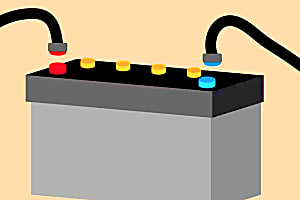Judges' appointment: SC collegium, govt may finally agree on MoP
Pradeep Thakur | TNN | Updated: Oct 17, 2017, 05:07 IST
NEW DELHI: The standoff between the government and the Supreme Court collegium over finalisation of the memorandum of procedure (MoP) for appointment of judges to constitutional courts seems to be heading for a resolution.
The last of the hurdles that kept the MoP in abeyance - a proposal to set up a permanent secretariat in the SC and each of the 24 HCs to vet senior advocates who could be considered for judgeship - has been resolved with the SC last week agreeing to constitute a committee of judges and a permanent secretariat in the SC and every HC to vet applicants for 'senior advocate' designation.
Though the secretariat is for the purpose of screening applicants for senior advocates, a government source said the data bank can also be used to examine the suitability of candidates being considered for judgeship of the SC and HCs as it will have graded evaluation of the work of advocates, their pro bono activities, personality, etc.
The deadlock over MoP had persisted for over a year with two CJIs rejecting it thrice on the ground that setting up a panel or a secretariat outside the collegium would impinge on judiciary's independence.
The government argued that a secretariat would bring transparency in selection and this was in keeping with the judgment of the Constitution bench which had in December 2015 asked the government to frame a new MoP incorporating five key elements, including a mechanism to ensure transparency.
Subsequently, the government drafted the MoP and sent it to the collegium which objected to at least three clauses. The secretariat was one of them, and the other two included merit-cum-seniority as criteria while considering a judge for elevation, and the government proposing a veto to drop any collegium recommendation on the ground of national security.
One issue seemed to have been addressed in February when the collegium gave primacy to merit over seniority when it recommended the appointment of Justice S Abdul Nazeer to the SC. On rejection of a candidate on the ground of national security, the higher judiciary seems to have partially relented saying the government must express the reason in writing.
The last of the hurdles that kept the MoP in abeyance - a proposal to set up a permanent secretariat in the SC and each of the 24 HCs to vet senior advocates who could be considered for judgeship - has been resolved with the SC last week agreeing to constitute a committee of judges and a permanent secretariat in the SC and every HC to vet applicants for 'senior advocate' designation.
Though the secretariat is for the purpose of screening applicants for senior advocates, a government source said the data bank can also be used to examine the suitability of candidates being considered for judgeship of the SC and HCs as it will have graded evaluation of the work of advocates, their pro bono activities, personality, etc.
The deadlock over MoP had persisted for over a year with two CJIs rejecting it thrice on the ground that setting up a panel or a secretariat outside the collegium would impinge on judiciary's independence.
The government argued that a secretariat would bring transparency in selection and this was in keeping with the judgment of the Constitution bench which had in December 2015 asked the government to frame a new MoP incorporating five key elements, including a mechanism to ensure transparency.
Subsequently, the government drafted the MoP and sent it to the collegium which objected to at least three clauses. The secretariat was one of them, and the other two included merit-cum-seniority as criteria while considering a judge for elevation, and the government proposing a veto to drop any collegium recommendation on the ground of national security.
One issue seemed to have been addressed in February when the collegium gave primacy to merit over seniority when it recommended the appointment of Justice S Abdul Nazeer to the SC. On rejection of a candidate on the ground of national security, the higher judiciary seems to have partially relented saying the government must express the reason in writing.
Get latest news & live updates on the go on your pc with News App. Download The Times of India news app for your device.
From around the web
More from The Times of India
From the Web
More From The Times of India

After Rahul Gandhi's poetic taunt, Smriti Irani hits back with a 'sher'

Aarushi-Hemraj murder case: IPS officer, wife seek compensation for 3 servants

2-judge SC bench does what 3-judge bench refused

Grant for OBC, SC families for reconstruction of old house

SCS' win a mandate against BJP govt's policy: AUSU president Awanish Yadav













































All Comments ()+^ Back to Top
Refrain from posting comments that are obscene, defamatory or inflammatory, and do not indulge in personal attacks, name calling or inciting hatred against any community. Help us delete comments that do not follow these guidelines by marking them offensive. Let's work together to keep the conversation civil.
HIDE